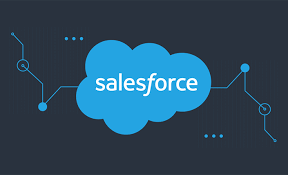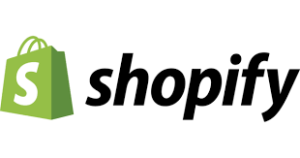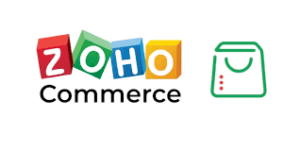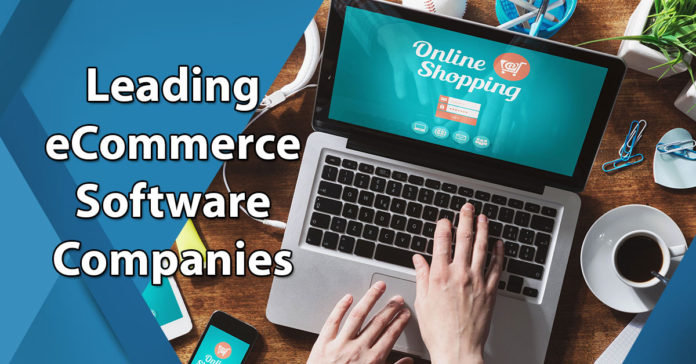Best and most authentic e commerce software companies will be explained in this article. Organizations want e-commerce software that can manage high order volumes, provide excellent CX, and automate back-office processes as the online buying scene expands.
E-commerce is embraced by billions of people, and some researchers predict that by 2025, the internet market will have nearly doubled in size. Organizations using out-of-date e-commerce software could find it difficult to capture a respectable portion of the market as the sector grows more competitive. A good e-commerce platform should contain SEO tools, social commerce capabilities, and a seamless mobile experience in addition to inventory management services.
The following 10 e-commerce software companies, which include Salesforce, Shopify, and GoDaddy, stood out to help organisations satisfy their expectations after analysing a number of expert and user reviews. Learn about their unique qualities, difficulties, ideal clients, and cost details.
Top 10 Best e-commerce software companies In 2022
Top 10 Best e-commerce software companies are explained here.
1. Salesforce Commerce Cloud

Salesforce Commerce Cloud, the company’s main product, is available in both B2C and B2B editions. The B2C version can be integrated by businesses with Facebook and Instagram, two popular social media selling platforms. Additionally, the platform offers tools for personalisation, AI-powered shopper recommendations, A/B testing, and the capacity to roll out campaigns and promotions.
Salesforce asserts. Any size of organisation can profit from Commerce Cloud, but due to the complimentary Salesforce products it can interact with, large corporations and current Salesforce clients may reap the greatest rewards.
Pros:
The platform integrates well with other apps and has useful campaign management features. Salesforce has a wide range of other products that can integrate with Commerce Cloud, allowing users to access all of their organization’s data in a single location.
Cons:
Due to its sophisticated user interface, slow loading pricing books, and iOS compatibility difficulties, Commerce Cloud may experience performance challenges.
2. Shopify

For SMBs, Shopify provides an e-commerce platform. It has SEO tools, e-mail marketing, and promotions management, and users may set out whole shops and product listings. The functionalities of point-of-sale (POS) terminals can also be used by users to sell goods offline or online.
Additionally, Shopify provides Shopify Plus for big organisations with lots of transactions and Shopify Lite for small businesses who want to add products to their blogs or websites and take credit card payments.
The Lite edition of Shopify costs $9 per month, whereas Shopify Plus starts at $2,000 per month. The entry-level Shopify plan is $29 a month.
Pros:
Shopify offers an easy-to-use user interface, quick customer service, and adaptable design templates. The standard version also provides rapid and simple deployment.
Cons:
Consumers may need to buy third-party plugins, such as one that lets users buy numerous things with a single click, to increase functionality because it’s difficult for them to access and change material. Also problematic for consumers from abroad are the multicurrency options.
3. Oracle NetSuite Commerce

Web store, order management, inventory, and accounting capabilities are all provided by Oracle NetSuite Commerce. The software is intended for medium-sized businesses as well as divisions of larger companies. It offers mobile app functionality, automation, real-time reporting, and email marketing. Also check software companies
Pricing is provided upon request and typically consists of a one-time setup charge, an annual licence fee for the core platform, add-on modules, and the number of users.
Pros:
The platform provides an omnichannel experience, dependable uptime, and connection with NetSuite ERP software.
Cons:
For some overseas users, in particular, NetSuite Commerce’s complicated user interface (UX) and payment mechanism may necessitate adaptation.
4. BigCommerce

BigCommerce has tools for SEO, marketing, building online stores, and web hosting. The software supports headless commerce, a sort of e-commerce architecture that dissociates back-end commerce operations from the front-end user interface to allow for more design flexibility. In addition, BigCommerce provides POS terminal support for brick-and-mortar stores, WordPress integration, social commerce, and configurable design templates.
Pros:
BigCommerce includes a drag-and-drop storefront builder, omnichannel support, third-party integrations, and responsive customer service.
Cons:
BigCommerce needs bespoke development for app connectors, especially with other API clients and web content management systems like WordPress. Additionally, the customer journey isn’t always reflected in reporting.
5. Wix

Some people think of Wix as a website builder, but its capabilities for creating online stores make it a leading provider of e-commerce software for businesses, especially those who are just starting out with online sales. It provides standard e-commerce capabilities like dashboard templates, email marketing, multistore support, SEO, and social media selling integration. It also offers templates for building out stores.
Pros:
A WYSIWYG website builder, templates, and image bank are available on Wix. It also offers helpful customer service.
Cons:
The software offers few add-ons, and users could find it difficult to modify templates. Wix is better suited to small enterprises, therefore those who want to create massive stores might want to consider alternative solutions.
Companies can help their clients connect into the online market by working with e-commerce software providers like SAP and Wix.
6. GoDaddy

Another website builder with e-commerce capabilities is GoDaddy. To assist SMBs in setting up online storefronts, it offers website templates. It also provides connection for in-person payments, integration with third-party markets like Etsy and Facebook, and marketing tools for making social media ads, enhancing SEO, and sending personalised emails. Also check system software
Pros:
GoDaddy delivers dependable uptime and simple implementation. Additionally, its straightforward website builder can assist less experienced customers.
Cons:
The platform could use more customization options, and third-party services like Google’s tag management system don’t always interface smoothly with it. Additionally, it lacks dependable customer support.
7. PinnacleCart

Standard e-commerce features offered by PinnacleCart include SEO tools, pre-made and editable storefront templates, reviews and price filters for product listings, connections to third-party apps like QuickBooks and Shopzilla, and the ability to sell goods on Amazon, Facebook, eBay, and other e-commerce websites.
Pros:
PinnacleCart offers simple setup and a user-friendly interface. It also provides smooth customization and excellent customer support.
Cons:
Users can find it challenging to integrate PinnacleCart with their current setups. Additionally, compared to other e-commerce platforms, it provides less pre-made design templates.
8. Shift4Shop

Shift4Shop, formerly known as 3dcart, describes itself as an all-in-one e-commerce software platform that allows users to create websites and shops without charge, making it perfect for small enterprises and entrepreneurs. Templates, email marketing capabilities, SEO tools, and support for mobile commerce are all included.
The payment card processor offered by Shift4Shop is offered without charge to users in the United States. Otherwise, monthly rates begin at $29 for plans.
Pros:
Users can add many product varieties to the site, which doesn’t charge for each transaction. Additionally, it has capabilities built-in that other e-commerce software requires plugins for, such product reviews.
Cons:
Customers of Shift4Shop must utilise their payment card processor. Some consumers have also complained about poor accounting software integration and unresponsive customer assistance.
9. Zoho Commerce

The WYSIWYG interface of Zoho Commerce, which caters to SMBs, allows customers to create e-commerce websites. Other aspects of the platform include reporting capabilities, SEO, email marketing, and inventory management.
Pros:
Zoho Commerce provides speedy implementation and reasonable costs. The platform provides a user-friendly UX as well.
Cons:
The platform is not compatible with different third-party applications or payment gateways. Support staff frequently lacks product knowledge, and the UI frequently lags.
10. SAP Commerce Cloud

For large businesses with high transaction volumes who wish to boost performance with AI-powered product recommendations and A/B testing, SAP Commerce Cloud works well. Additionally, it has a WYSIWYG website editor, built-in processes, promotions capabilities, and the ability to handle various product catalogues and shops. Also check business management software
Pros:
Although SAP Commerce Cloud initially appears challenging, users soon discover how simple it is to build, set up catalogues, and prioritise activities and leads. The platform incorporates with more SAP goods as well.
Cons:
The absence of customer support for the platform means that new customers might require the assistance of an implementation partner. The complicated UI could take some time for new users to get used to.

